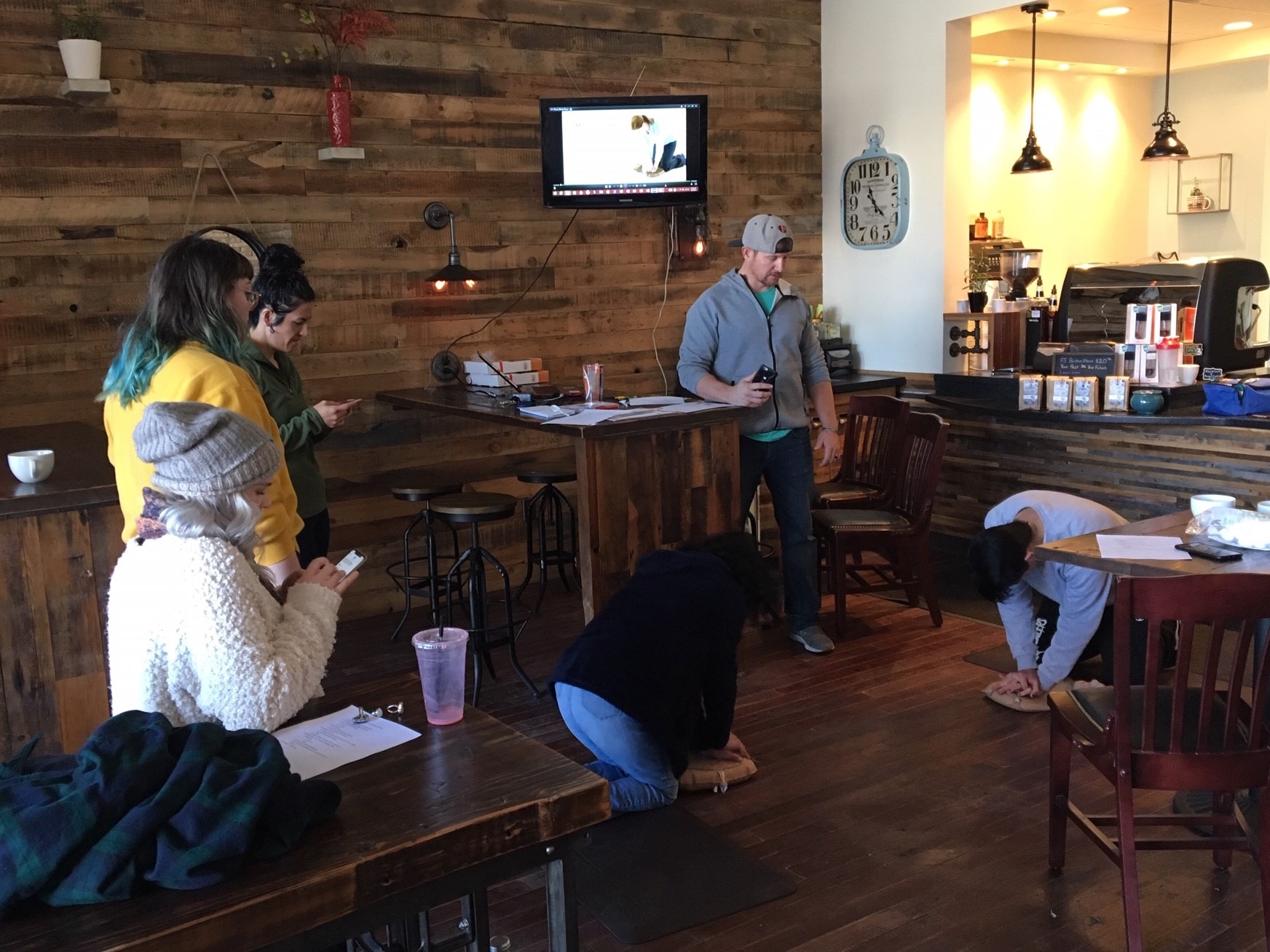During his nine years as a police officer, Skyler Dutton responded to medical calls that, unfortunately, ended in death. What did those calls have in common? None of the victims received bystander cardiopulmonary resuscitation, or CPR, prior to arrival of first responders. Dutton said it’s crucial for victims to receive aid in the first few minutes.
Administering CPR keeps blood flowing to the brain until rescuers arrive, according to the American Heart Assocation. The lifesaving procedure, performed when someone’s heart stops beating, involves regular chest compressions and mouth-to-mouth ventilation. However, performing mouth-to-mouth on someone, especially a stranger, can be intimidating. This causes a lot of bystanders to do nothing. People who are in the presence of a cardiac arrest victim are now encouraged to perform hands-only CPR.
“It’s such an easy skill to learn. Having that knowledge can give you the confidence to act in the time of an emergency,” said Dutton, who was a police officer at Grand Forks and then West Fargo in North Dakota.
He believes so much in the skill that he keeps a CPR Anytime kit at his Fargo Coffee shop to train his employees and customers. Dutton also offers $1 off drinks to customers who spend a few minutes learning hands-only CPR while waiting for their order.
Dutton said it’s not necessarily a lack of understanding but of preparedness that prevents people from helping to save a stranger.
“Rather than acting appropriately, people tend to stand by and hope someone more skilled or qualified will arrive,” he said. Dutton suggests mentally rehearsing possible scenarios is just as important as learning CPR and can be the difference between acting confidently and being a bystander.
“If it’s me who collapses, I want everyone around me to confidently and properly administer CPR until paramedics arrive,” he said. “I’ve even trained my children, and review it periodically with them.”
Free kits available
The chances of a victim surviving doubles, or even triples, when CPR is administered, the American Heart Association says. Cardiac arrests are typically random and more than 350,000 cases each year take place in non-hospital settings.
According to 2014 data from the American Heart Association, 45 percent of victims who suffered cardiac arrest out of the hospital survived when bystander CPR was done immediately. However, 70 percent of Americans don’t know how to perform CPR, or their training has lapsed. According to the F-M Ambulance team, only 34 percent of cardiac arrest victims in the Fargo-Moorhead area receive immediate bystander CPR.
The F-M Ambulance team has received a grant from the Otto Bremer Foundation and the American Heart Association to provide CPR Anytime Training Kits free to the public. These kits offer training on how to perform hands-only CPR. Each kit includes a DVD and a Mini Anne CPR personal manikin, both of which make teaching easy.
The goal of the grant is to raise the number of people who feel comfortable performing hands-only CPR as a bystander. This should ultimately save more lives. The F-M Ambulance team offers a free kit to anyone who is willing to teach at least five other people. Each person who takes a kit must agree to send in a list of the names of people they taught.
The F-M Ambulance team and Dutton believe everyone should know CPR.
“Hands-only CPR is simple to learn and practice, and is very time efficient. These kits make it even easier and more accessible to learn,” Dutton said. “If it’s your loved one who has collapsed, wouldn’t you like to have the confidence to jump into action?”
…
Posted In Emergency Medicine, Grand Forks, Health Information, News
